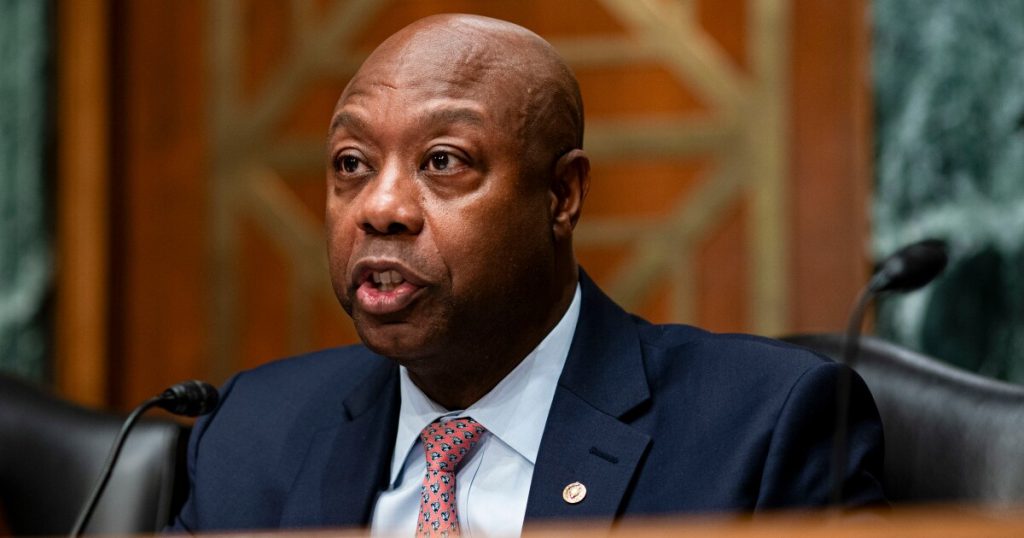Bloomberg
WASHINGTON — The stablecoin bill that’s poised to pass through the Senate this week contains a carve-out that would allow some crypto banks to bypass state rules and more easily expand nationally.
The GENIUS Act — which is
It’s also the biggest piece of financial policy legislation since the 2018
One of those provisions — a section tucked into the bill
“That is a pretty significant expansion of special purpose depository institutions,” said Michele Alt, a partner at the Klaros Group who formerly served as the Office of the Comptroller of the Currency’s point person on federal preemption issues. “I would ask, what else could you create as a special depository institution? How could this be used?”
The provision has
Shortly after those groups pushed back against the provision, Republican lawmakers included a
“We remain concerned with the provision in the substitute amendment … that would allow uninsured banks to engage in money transmission and custody activities nationwide without the approval or oversight of host state supervisors,” the Conference of State Bank Supervisors said in a statement. “While the section was slightly narrowed, CSBS is alarmed by the dramatic impact the provision could have on consumers and financial stability.”
Some states, like Wyoming, Georgia and Connecticut, offer SPDI charters to banks with unique business models — including, but not limited to, those that focus on serving the cryptocurrency industry — that do not offer Federal Deposit Insurance Corp. insurance.
Currently, states can approve charters from other states on a case-by-case basis. The provision in question — 16(d) in the legislative text — would allow the payment stablecoin subsidiaries of SPDIs to operate if the SPDI has “substantially similar” regulation as insured banks.
The bill says nothing, however, of capital and liquidity requirements of those uninsured institutions.
“It seems to me that the host states are going to have virtually no ability to enforce their home state, their host state, consumer protection laws against these out-of-state, state-chartered payment stablecoin issuers,” said Art Wilmarth, a bank law professor at George Washington University Law School.
Stablecoins and uninsured depository institutions can still experience runs, which could spread financial stress into the broader economy and financial system if SDPIs grow large enough and lack adequate capital and liquidity provisions. SDPIs are not currently large or systemically important enough for such a scenario to play out, but if SPDIs have unfettered access to all 50 states, they could grow large enough to pose those risks.
“The reason that national and state full service insured banks can bank interstate isn’t just because federal law says so (although that’s the primary reason) it’s because there’s a uniform framework for the supervision and monitoring of safety and soundness for those institutions,” Alt said. “When you have something less than that, created by a unique state law, the other states in which that special purpose depository institution may operate don’t have the same assurance that there’s some sort of standardized approach to the safe and sound operation of that institution in their state.”
And although there is a section that appears to be written to try and make sure that states can enforce consumer protection laws, it’s riddled with inconsistencies and holes, Wilmarth said.
“States could not oversee the capital liquidity, which is really what they care about,” said Wilmarth. “And they could only enforce consumer protection laws to the extent permitted by Section 7(f) [which outlines consumer protection].”
Wilmarth said that reading the stablecoin bill in concert with the 1994 Riegle-Neal law, which outlines state preemption and the dual banking system, leaves a wide loophole for SPDIs to bypass state consumer protection laws.
“The basic rule of Riegle-Neal is that if you’re an out-of-state bank with a local branch, you’re only subject to host state law to the same extent as an out-of-state national bank is subject to that host state law,” Wilmarth said. “So if the statues or the courts or the OCC have preempted a host state consumer protection law for national banks, the out-of-state bank gets that same preemption, and it only has to comply with its home state law, not host state law. And you know the OCC is going to preempt every state consumer protection law they possibly can.”
With that, Wilmarth said it’s very unlikely that the consumer protection laws of any host state — say California, which has robust state consumer protection — would apply to SPDIs with payment stablecoin subsidiaries. Instead, the consumer protection laws of the host state — say Wyoming — could apply.
While the stablecoin bill is likely to pass in its current form through the full Senate, the House still needs to take up the measure. The House’s version of the stablecoin bill doesn’t include a provision similar to 16(d), and should that version pass through the lower chamber on its own, the House and the Senate will have to have a conference committee to hash out differences.
The House could also make changes to the Senate’s version, and send it back to the upper chamber.
That said, there’s no guarantee that House lawmakers will want to pick a fight on this issue.
“If we really don’t trust state regulators at all to be regulating banks, why do we have a dual banking system?,” said Julie Hill, dean of the University of Wyoming College of Law and an expert on bank regulation. “Historically, there was a lot of suspicion about other bank regulators and branching across state lines. States operating branch networks is a relatively new development, and yet I think that it’s been a largely positive development in banking, because it allows banks to diversify, and state lines aren’t always drawn to be geographically intuitive.”

